
Against Monopoly
defending the right to innovate
Monopoly corrupts. Absolute monopoly corrupts absolutely.
Copyright Notice: We don't think much of copyright, so you can do what you want with the content on this blog. Of course we are hungry for publicity, so we would be pleased if you avoided plagiarism and gave us credit for what we have written. We encourage you not to impose copyright restrictions on your "derivative" works, but we won't try to stop you. For the legally or statist minded, you can consider yourself subject to a Creative Commons Attribution License.
current posts | more recent posts | earlier posts
Net neutrality
[Posted at 11/13/2008 06:55 AM by David K. Levine on Innovation  comments(0)]
comments(0)]
Progress
1) While the book contained some proposals for reform, it was explicitly calling for elimination of intellectual property, and in fact the book repeatedly claimed that studies suggested all parties would benefit from its removal, although Atkinson found no study that truly documented that claim. Boldrin replied that he is politically realistic and knows you must start with reform before you can get to full elimination.
*Apparently Atkinson missed Chapter 8 of the book which that the best available data shows that intellectual property has little or no effect on innovation. As there are many harms, also well documented throughout the book, a policy with no social benefits and many harms would seem ripe for elimination. I don't know, by the way, of any study or assertion that elimination of intellectual property would benefit everybody - I'm pretty sure, for example, that some authors, movies stars, and others, would make less money without IP than they do with it. The stated goal of IP however, is to promote innovation and progress, not to enrich specific individuals.
2) There is no focus on incentives for innovation in the book, essential if you are to discuss IP. Boldrin replied that innovation occurs often without incentives, a position Atkinson strongly disputed.
*The central theme of the book is that innovation requires incentives. We spend chapter after chapter documenting what the incentives are when there is no intellectual property, so this increases our doubt that Atkinson read the book carefully.
3) It was backwards to claim the Internet means creators should have to extract rents more quickly now after release, as the digital age shows it's even harder to do so as pirated works produce that much more quickly.
*I can't even parse what is being claimed here, but we've devoted a lot of time to the issue of how rents are extracted in the presence of cheap internet copying. While it is certainly possible to charge and profit with rapid copying and no intellectual property, the evidence suggests that the best business model in many cases is that of giving the recorded/copiable product away for free over the internet and selling complimentary products, for example, in the case of musicians, live performances.
4) The book sees price falling to zero but ignores the fact that in that scenario, revenues fall to zero.
*This statement is mathematically incorrect. As a practical matter, as price falls revenue can go up or down, depending on how much sales increase.
5) The book has an unfortunate tendency toward diatribe, such as calling IP evil, referring to US Supreme Court justices as having double-digit IQs and suggesting that those who support copyright don't appreciate facts.
*I admit the book has an aggressive tone, although I'm not sure all these assertions about what we say are correct. But speaking of diatribe, we are not the ones who refer to our opponents as thieves and pirates.
As a Schumpeterian myself...I think Atkinson is right on the money. Copyright, and IP in general, is all about incentives. Rights are given, a limited monopoly is created, to encourage authors and inventors to produce writings and discoveries. This comes from the Progress Clause of the US Constitution, aptly named, as a focus only on use of end-products will soon leave you with fewer end-products.
*We are not Schumpeterian because Schumpeter created a theory for which there is no evidence. Notice how it is simply asserted that IP incentives achieve the desired effect. It is funny how those people who decry theory (we are theorists) assert their own theories as if they were evidence. We are extremely concerned with innovation as the engine of modern economies; we started as did most economists thinking that limited monopoly was a necessary incentive for innovation. Based on evidence we no longer believe that. The evidence can be found in our book. On the face of it the proposition that monopoly (even limited monopoly) is somehow the friend of innovation is not terribly plausible.
[Posted at 11/11/2008 01:32 PM by David K. Levine on Was Napster Right?  comments(5)]
comments(5)]
What to look for
You could start a new blog, setting up a pseudo-world scenario where we begin life without patents and see what happens. I am getting enthused about this. Your world has a town, farms, etc. Initially your world is unpopulated, but citizens move to your world by being registered on the blog. You might be able to recruit citizens from TechDirt and other similar blogs, explaining that your goal is to see whether how a world would evolve without IP protection.While your world is small, your world has lots of technology. So, people will build businesses and industry, and eventually competition will kick in. So, as your world grows, two people will be producing product X, and one will "invent" a product. It might be interesting to see how people behave in this world and whether the world continues to grow without IP protections or whether there comes a point where someone demands them. Then you can have town hall meetings to debate the merits (if it gets to that point). It would be quite an experiment.
I admit I'm too lazy to actually do such a thing, but it is an interesting idea. As the basis for further discussion, I pointed out that there is one experiment ongoing, and another that may be upcoming:
The virtual world without patents is an interesting idea. There is one experiment going on right now in the non-virtual world, and perhaps soon to be one in the virtual world. Both highlight some problems with the idea. In the non-virtual world open source/free software effectively does not use either patents or copyright. It competes pretty successfully with the closed source/proprietary world and is a serious business drawing in companies such as Sun and IBM. It does well in the business world, less well in the consumer world. At the most extreme end of the consumer world is the computer game world which is heavily dominated by proprietary software - mostly protected by technical means, though, not so much by legal means.
In the virtual world, the world you describe is somewhat like the MMORPG secondlife. However, secondlife has some sort of IP implemented through technical means. Apparently though they are opening up their software to competitors, which raises the possibility of compatible worlds which don't have IP. [I don't know much about how all this works - if there is someone out there familiar with secondlife, post a comment.]
Let me point out the problems with these types of experiments:
1. Industries are different. That the open source business model works well for software tell us little about pharmaceuticals. It's hard to find anyone in the software industry who defends software patents. Innovations in software are inexpensive and relatively easy to protect anyway so the upside effect of patents is weak; software builds a lot on existing software, so the downside effect of patents is very strong. It is possible in a virtual world it would be possible to do a more controlled experiment; for example by introducing an industry with development costs more like pharmaceuticals. Much as I'd like to wave the flag and say "see patents don't work for software, let's get rid of them all" this is a non-sequiter.
2. People can choose which world to participate in. On the one hand this favors the patent free world, because people who are most altruistic are drawn to that world; a world in which nobody had patents would have a lower proportion of altruists. On the other hand, as an innovator if I had to choose between a patent free and world with patents, I might well choose the world of patents in hopes I could earn more. Historically this was the major use for patents: not so much to promote innovations, as to encourage skilled artisans to immigrate by promising them short-term monopolies.
[Posted at 11/09/2008 03:08 PM by David K. Levine on The IP Wars  comments(21)]
comments(21)]
Yes we have some
[Posted at 11/09/2008 02:59 PM by David K. Levine on Innovation  comments(0)]
comments(0)]
More Patent Silliness
While I am pro-intellectual property, I am against patents that appear to be, in my opinion, ludicrous. Please find a link below to a patent application that, in my opinion, appears to be beyond ludicrous. The application is from Halliburton Energy Services and is for "Patent Acquisition and Assertion by a (Non-Inventor) First Party Against a Second Party."
This application should fail for several reasons. First, it appears to me to be silly or even absurd. The essence of this patent is sort of like having a patented method for making use of your refrigerator. After all, one of the purposes of a patent is to "prevent," and the claims of the application as filed say essentially that someone should buy a patent from someone else and assert it against a third party to "prevent" them from making, using or selling their invention. Therefore, if this patent would issue, it would hamper the ability of others from exercising their right to "prevent."
Now, Halliburton has cleverly pointed out that a person may use a computer to perform research on a "secret aspect" of the second party's software to make the "secret aspect" observable, or non-secret, and that portion of their claim appears to be the novel feature.
So, the intent of this patent application is to buy a patent, hack (seems like hacking to me!) into someone's software, write a claim using knowledge of the hacked software, getting the patent to issue, and then asserting the patent against the second party. The only difference is making the "secret aspect" non-secret.
Hopefully the USPTO will find references in patent law that point out that Halliburton's "novel" idea is already embodied in the law and is therefore not novel. Reverse engineering, especially hacking someone's software, is certainly not new. Indeed, Halliburton might even find itself up against the formidable DMCA since the DMCA specifically prohibits bypassing security protocols, and Halliburton's claims appear to be perilously close to requiring an illegal act (turning the hidden aspect into an observable aspect) in order to be operative. That would assuredly be a USPTO no-no as the claim would not be useful as defined by 35 U.S.C. 101, since a portion of the claim would require an illegal action.
The second issue I already discussed above, and that is that people have taken these steps (almost assuredly including figuring out whether software code could be covered by a patent application) before. So this technique is not new and should also fail under 35 U.S.C. 102 or 35 U.S.C. 103.
Third, Bilski should sink this one like a rock. After all, nearly all of these steps are purely mental steps except for the reverse engineering part. Even the reverse engineering part is mostly mental process, except for exposing the code, which does require a computer. However, the computer would usually be a general purpose computer and Bilski should apply.
This application has yet to go to an examiner, so it might be a while before we see how the USPTO deals with it.
[Posted at 11/08/2008 07:33 AM by David K. Levine on behalf of Lonnie Holder on IP in the News  comments(0)]
comments(0)]
We have some
For authors - there is a new feature that enables you to receive email notification when you receive comments on your posts. Just make sure that your that for each post you set the public email address to your real email address and put an asterisk after your email address. So, for example, in the email field I put
david@dklevine.com
nothing will happen, while if I put
david@dklevine.com*
then for that post I will receive email notification of any comment that is submitted to that post.
[Posted at 11/02/2008 08:50 AM by David K. Levine on Innovation  comments(8)]
comments(8)]
Tim Lee on Wikipedia
[Posted at 10/31/2008 07:56 AM by David K. Levine on Innovation  comments(5)]
comments(5)]
If pictures are worth 1000 words, what is a table worth?
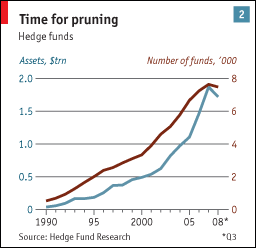
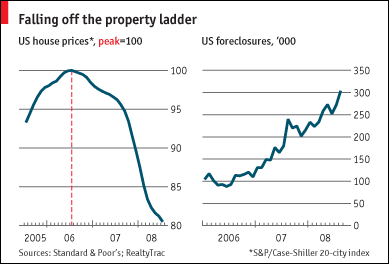
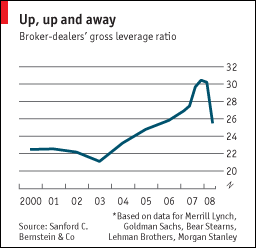
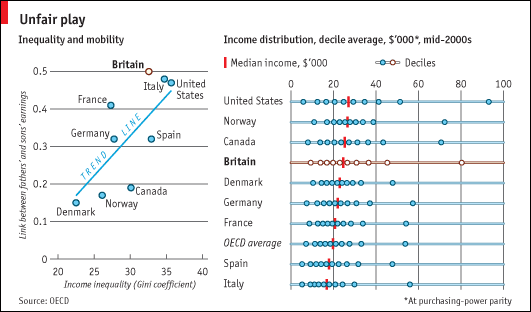
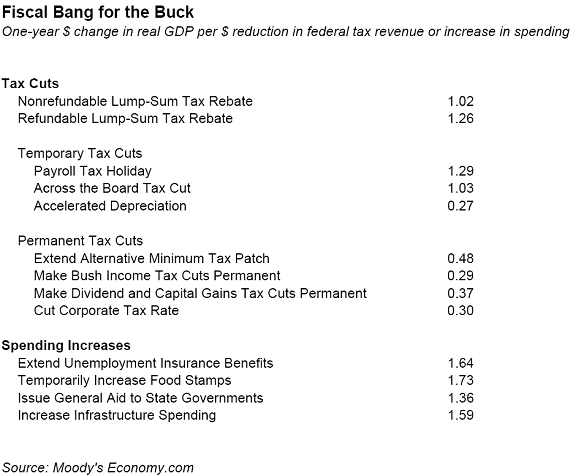
[Posted at 10/29/2008 11:02 AM by John Bennett on Against Monopoly  comments(0)]
comments(0)]
A Modest Plea
[Posted at 10/26/2008 09:02 AM by David K. Levine on Against Monopoly  comments(12)]
comments(12)]
More financial crisis stuff
Here is a summary of what I think:
Chari, Christiano and Kehoe's paper ends with a plea for policy makers to share their data with the public. I agree with them entirely. Our two top policy makers Poulson and Bernanke have been acting as if the world is coming to an end without explaining why. Their behavior is the worst behavior by central bankers I have seen during my career as an economist. There have been days of complete chaos and panic on the stock market, and at no time have either of the two bothered to appear on television to explain to the general public what they think is going on. Bernanke speaks to no one and Poulson only to bankers. The two of them have indicated at various times that the problem is so severe that if things in the financial sector aren't fixed within periods as short as a day or a week the economy will collapse. They have never come close to giving an adequate explanation of why they have these beliefs. Two explanations come to mind: they don't know what they are doing, the conclusion that I and I think the markets have reached, or that they know something we don't know. If it is the latter it is long past time they explain what it is.
Academic economists have pored over the public data and have concluded that there is both a crisis in the financial sector and the beginning of a recession. The only obvious linkage between the two is that the recession has caused asset prices to fall putting enormous stress on the financial sector. Poulson and Bernanke apparently believe that the financial sector is either causing or aggravating the recession.
Chari, Christiano and Kehoe have produced the kind of report the Fed should have produced months ago. Nobody disagrees that there is stress in the financial sector. The question is why we think there are linkages to the rest of the economy. People have gone around making assertions ranging from the absurd (GM can't sell cars because it can't borrow money) to things that appear to be merely wrong (credit in the non-financial sector is drying up). Why has no U.S. government agency tried to provide clear careful reports about what is going on? Everything I have seen has been either produced by bankers in the private sector or the IMF. Most of the stuff, for example by the IMF, I can only describe as highly convoluted. Chari, Christiano and Keho seem to have approached the problem in a straightforward way. If the problem is a big one, it shouldn't take particularly esoteric forms of measurement to identify it.
Some people at the Fed argue that they receive data under confidentiality agreements that make it impossible to make public. Chari, Christiano and Kehoe and I are not pleading for proprietary data to be made public in whole lots. I'm sure that summaries can be made public in a useful way. If the private data simply says the same thing as the public data in a more detailed way: the Fed should say that in a clear way so that the (widespread) idea that Bernanke and Poulson are seeing some sort of data that indicates the opposite of what every one else sees can be put to rest.
I have more to say on the subject of data than that. When I was at the Minneapolis Fed on Friday I tried to get some bond rating data. It turns out this requires a subscription that the Minneapolis Fed does not have. Frankly it is pretty absurd that a government agency charged with regulating the banking sector has to pay to get rating agency data. But I'll say more than that. The Fed long ago should have gone in and demanded to see the balance sheets of banks and if there was a lemons problem tried to solve it the obvious way by telling the world who the losers and winners were. I understand in normal times the Fed and Treasury is deferential to the sector it regulates. The idea that these guys need $700 billion of public funds to bail them out, but can't reveal secrets by opening their books to the public is offensive.
As to what is really going on: It has seemed to me since about 2006 when the price of oil skyrocketed that a severe recession was not an unlikely outcome if the price rise was due to anything other than a short-term production hitch. Short term elasticity of output for commodities being what they are, prices are very sensitive to demand. As the price skyrocketed on expectations of future growth, now they are dropping on expectations of future lack of growth. It will require a 50% further decline in the price of oil to get it back to the peak price during the decade of 1990-2000. Nobody can say for sure that its "all oil" or "all financial" causing the recession. But there is at least as much reason to believe it is oil as financial.
So what is my creative plan for dealing with the mess? The goal seems surely to be first and foremost to avoid doing things that will make things worse, and second not inventing new and crazier plans every day - as Poulson spent several weeks doing - but to try to understand what plans might have actually worked in the past. In the last several weeks I've learned what did work in Chile and what didn't work in Japan. There is evidence in both cases that fixing the banking sector led to recovery of the real sector - although as usual cause and effect are hard to distinguish: the reforms may have worked because the real sector was recovering anyway. But there is no reason not to fix the financial sector. We know what the problem is: allowing failed managers of zombie banks to maintain fictitious balance sheets. As long as this continues nobody is going to be eager to lend to the banking sector. The solution is straightforward - the managers who incurred the losses need to be fired, and the losses clearly assigned to share-holders, bond-holders, and tax-payers. This is what the private sector would do in the absence of government regulation. It can be done in the current regulatory regime by forcing banks into bankruptcy by enforcing existing regulations (i.e. mark to market enforced ruthlessly), but bankruptcy proceedings are not an expeditious way to restructure the banking sector. In Chile they nationalized the banks, fired the managers, restructured the debt apportioning the losses, then sold the newly recapitalized banks back to the private sector. If we want to fix the financial sector here we need to do the same. Or we can follow the Japanese model - spend $400 billion buying preferred share in banks, and then wait and pray. The Japanese waited nearly a decade before they finally gave up and passed a law offering the opportunity to accountants who claimed firms were solvent to go to jail when it turned out they weren't.
[Posted at 10/26/2008 08:56 AM by David K. Levine on Against Monopoly  comments(5)]
comments(5)]


Most Recent Comments